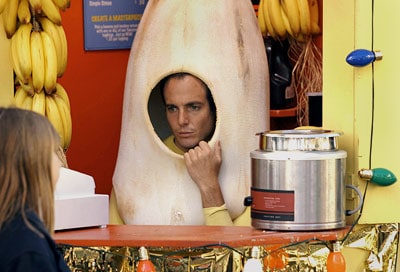
It’s been such a busy day at work that you skipped lunch and had a Diet Coke. As you drive home, the sun has already set and you are starving. You try to picture in your head what food is in the pantry and plan what meal you’re going to make. And then you start noticing one fast-food restaurant after another. Each restaurant offers an entire menu of choices that would take away your hunger. Before you’ve even had time to really think about your decision, you’ve already pulled into the drive-thru. You order a combo meal with a large drink and scarf it down in the car as you drive with your knee.
What just happened? It doesn’t make sense. In no way does your mass-produced combo meal compare to the fresh, homemade meal you could have prepared yourself. You settled for a cheap substitute. You were so hungry, and the drive-thru was right there. It was convenient, and so you went for the quick fix. Now you feel stuffed, but you certainly aren’t satisfied. As soon as you have swallowed your last bite, you think to yourself, “Why did I eat that?”
When we are hungry, we have a tendency to settle for what doesn’t truly satisfy. That’s not just when it comes to our stomachs; it’s also true of our souls. We end up worshiping what doesn’t really satisfy.
Worship, like eating, is something that everyone does. When you come down to it, and subtract the religious language, worship is the built-in human reflex to put your hope in something or someone and then chase after it. You hold something up and then give your life to pursuing it. If you live in this world, sooner or later, you develop assumptions about what life is all about and what you should really be going after. And when you begin to align your life with that pursuit, you begin worshipping—whether you acknowledge it or not.
The end result, of course, is that our lives begin to take the shape of what we care most about. We each make the choice to worship, and then at some point, we discover that the choice really makes us. The object of your worship will determine our future and define our life.
We’re wired for worship. More specifically, we’re wired to worship the God who created us. When we choose not to worship God, by default, we worship a cheap substitute. We are looking to someone or something to do for us what only God can truly do for us. The Bible calls this idolatry.
Idolatry, of course, sounds like something you see in an ancient history museum, with little relevance to your life today. There may be more than a thousand verses about it in the Bible, but wasn’t that for back then? After all, I don’t know anyone who bows down to carved images or kneels down to golden statues.
We still have our idols today, but our worshipping looks a little different. These days, we tend to do our “kneeling” and our “bowing” with our imaginations, our checkbooks, our search engines and our calendars.
It’s not a question of if will we worship, it’s a question of who or what we are worshipping. Are we worshiping the Lord God or a cheap substitute that doesn’t really satisfy?
* Instead of finding our security in God, we try to find it in money.
* Instead of finding our identity in God, we try to find it in our profession.
* Instead of finding comfort in God, we try to find it in food.
* Instead of finding satisfaction in God, we try to find it in pleasure.
* Instead of finding fulfillment in God, we try to find it in our marriage.
Many of the things we worship instead of God are not bad or evil in and of themselves. What gets us in trouble is that we turn them into objects of worship that we passionately pursue and put our hope in. We settle for fast food because we’re hungry and it’s fast, available and doesn’t cost much—but it doesn’t really satisfy, either. In John 6, Jesus described himself as the “Bread of Life” who truly satisfies. He promised, “He who comes to me will never go hungry and he who believes in me will never be thirsty” (John 6:35).
When we settle for anything other than Him, it inevitably leads to disillusionment and disappointment. But the choice is always ours to choose something better. As Augustine prayed, “Our hearts are restless until they find rest in thee.”






















